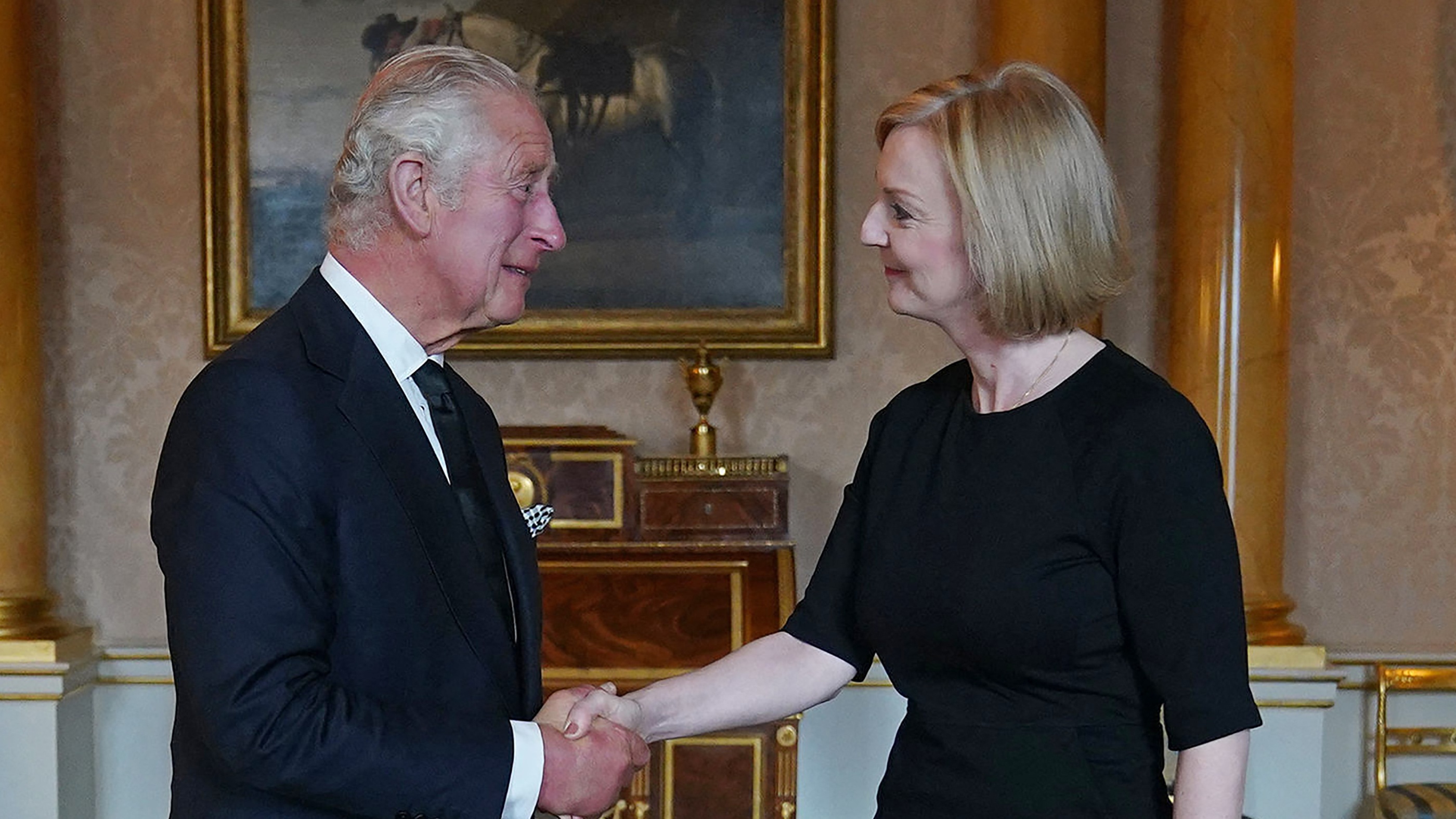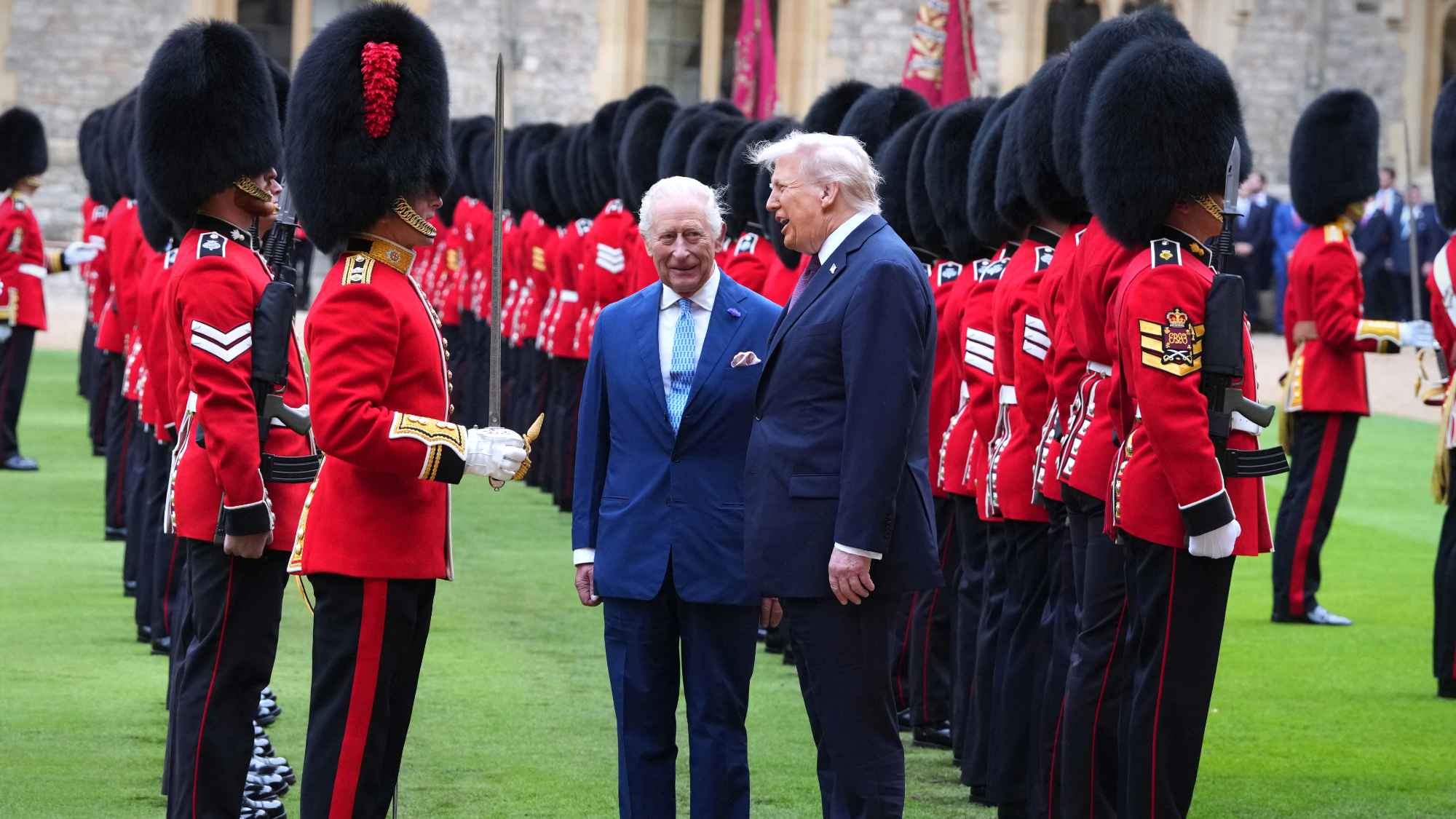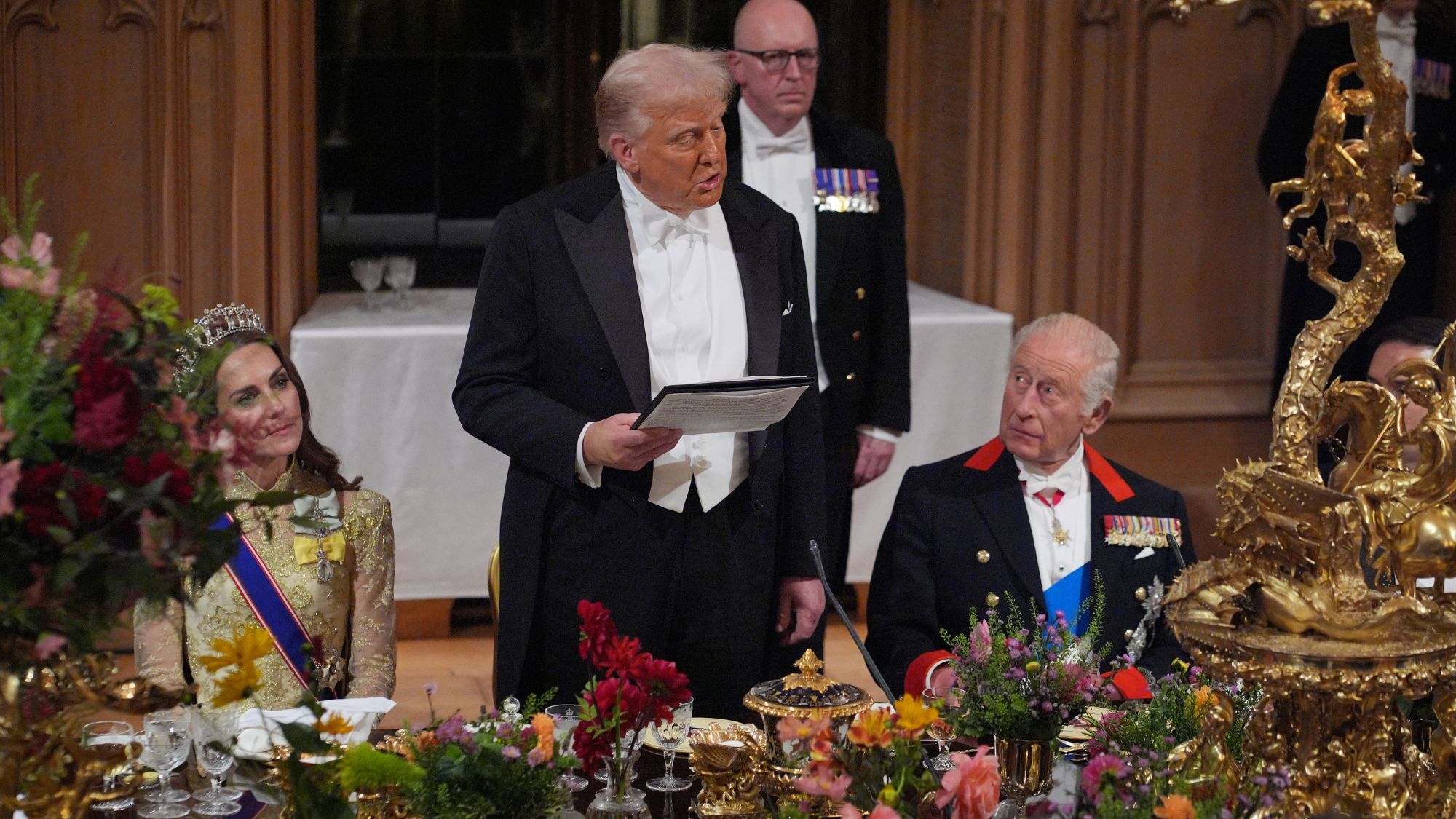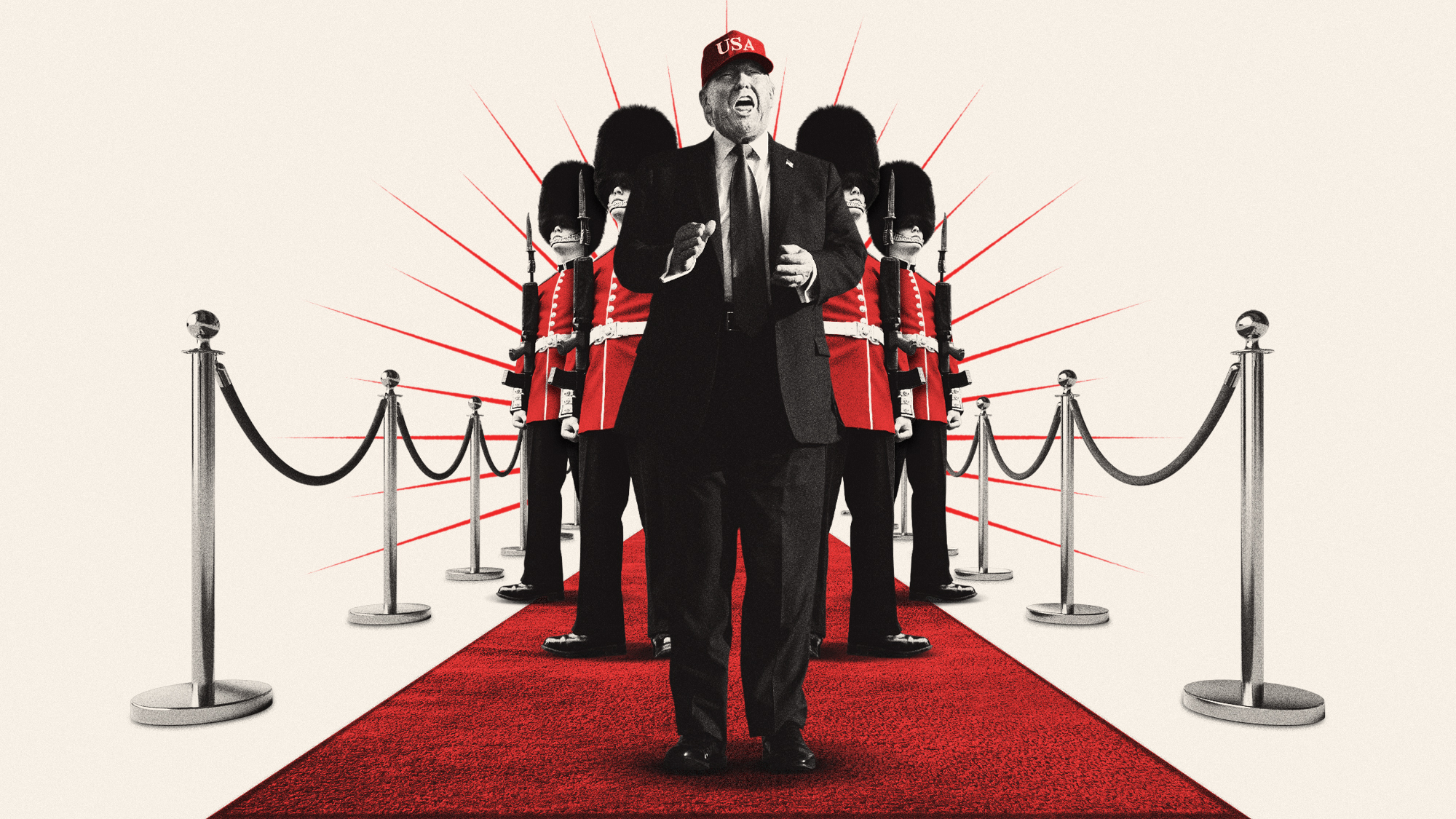What challenges will Liz Truss and King Charles’ relationship face?
The new monarch’s reign and Tory leader’s premiership are ‘inextricably’ linked

A free daily email with the biggest news stories of the day – and the best features from TheWeek.com
You are now subscribed
Your newsletter sign-up was successful
The UK is adjusting to life under new rulers following the arrival of both a new prime minister and a new monarch within the space of 48 hours.
“Not since Britain became a democracy in the 19th century has the country had this double churn,” said historian Anthony Seldon in The Times. Less than two weeks before, Boris Johnson was in No. 10 and Queen Elizabeth II was on the throne; now, Liz Truss is head of our government and King Charles III is our monarch.
The first PM to serve under the late Queen was Winston Churchill, and they developed a “deep and enduring friendship”, according to British Heritage Travel magazine. Whether Truss and Charles will do likewise is a matter of speculation, following the first of their weekly private audiences.
The Week
Escape your echo chamber. Get the facts behind the news, plus analysis from multiple perspectives.

Sign up for The Week's Free Newsletters
From our morning news briefing to a weekly Good News Newsletter, get the best of The Week delivered directly to your inbox.
From our morning news briefing to a weekly Good News Newsletter, get the best of The Week delivered directly to your inbox.
Why does their relationship matter?
Britain’s recent PMs have often “boasted” about how this nation “thrives in a world where other countries are either massively richer or significantly more ruthless”, wrote ITV News’ political editor Robert Peston. This success has been attributed to Britain’s “soft power” through “our democracy, our culture, our history, our language – and our late Queen Elizabeth”, Peston continued.
For 70 years, the Queen was the “personification of that soft power” and the “apolitical underpinning of our parliamentary democracy”. She was the ultimate “matriarch”. But while King Charles automatically inherited her throne, “he cannot assume he will automatically be seen as the unquestioned patriarch of the country”, Peston added.
Whether “the monarchical foundation of our parliamentary democracy will be weakened or strengthened” may hinge on “the strength and nature of the relationship” between Charles and Truss. Their reputations, and “the UK’s culturally, diplomatically and economically important soft power”, will be “inextricably, symbiotically linked”.
What issues will Truss and Charles have to tackle?
Arguably the greatest challenge that they will face together is keeping the union whole, suggested Sebastian Payne in the Financial Times. During the 2014 Scottish independence referendum, a rare intervention by the Queen – who urged the Scottish public to “think very carefully about the future” before voting – no doubt “helped save the union”, said Payne.
A free daily email with the biggest news stories of the day – and the best features from TheWeek.com
But “the threat of a break-up has not gone away”, he continued, and both Truss and the new King “must grapple with the long trend towards independence”.
The death of the Queen at Balmoral has brought Scotland and England closer together like “no other event in modern times”. Our new rulers must foster this “glimmer of hope that new bonds of unionism could emerge and that Scots may prove receptive to the offer of something new”, Payne concluded.
As a constitutional monarch, King Charles’ role as head of state is largely ceremonial, and he is bound by his role to act on the wishes of the government of the day.
His strong views on the environment and climate change are already well known, however, after his decades of campaigning as Prince of Wales.
“If King Charles III is a ‘climate king’, as some environmental news outlets have optimistically labelled him, Truss is definitely not a ‘climate prime minister’,” said Time, which noted that she has shown “strikingly little interest” in green issues “despite serving as environment secretary from 2014 to 2016”.
Within days of taking over at No. 10, Truss announced a plan to “overturn the UK’s ban on fracking”, which critics say jeopardises “both local landscapes and the national effort to decarbonise”, the magazine reported.
Truss and Charles may also clash over issues of nationalism and immigration.
Charles has previously made it known that after his coronation in Westminster Abbey – a Christian ceremony – he wished to have “a separate interdenominational ceremony” in Westminster Hall, said Tim Walker in his Mandrake diary column in The New European. According to Walker, Charles was “determined to make it clear that he was going to represent people of all religions”.
Brexit convert Truss, meanwhile, has “made it clear that her government intends to take an even harder line” on immigration than the previous government, Walker continued. And “there are few if any concepts more alien to Brexit and its adherents than multiculturalism”.
As the two rulers now face the challenge of reconciling their differences, Truss will be under pressure to forge a strong relationship with the new monarch.
And Charles will need support from “across the nation”, including that of his PM, “if he is to succeed in his task of becoming the monarch that the country needs”, said Seldon in The Times.
Sorcha Bradley is a writer at The Week and a regular on “The Week Unwrapped” podcast. She worked at The Week magazine for a year and a half before taking up her current role with the digital team, where she mostly covers UK current affairs and politics. Before joining The Week, Sorcha worked at slow-news start-up Tortoise Media. She has also written for Sky News, The Sunday Times, the London Evening Standard and Grazia magazine, among other publications. She has a master’s in newspaper journalism from City, University of London, where she specialised in political journalism.
-
 Crisis in Cuba: a ‘golden opportunity’ for Washington?
Crisis in Cuba: a ‘golden opportunity’ for Washington?Talking Point The Trump administration is applying the pressure, and with Latin America swinging to the right, Havana is becoming more ‘politically isolated’
-
 5 thoroughly redacted cartoons about Pam Bondi protecting predators
5 thoroughly redacted cartoons about Pam Bondi protecting predatorsCartoons Artists take on the real victim, types of protection, and more
-
 Palestine Action and the trouble with defining terrorism
Palestine Action and the trouble with defining terrorismIn the Spotlight The issues with proscribing the group ‘became apparent as soon as the police began putting it into practice’
-
 How corrupt is the UK?
How corrupt is the UK?The Explainer Decline in standards ‘risks becoming a defining feature of our political culture’ as Britain falls to lowest ever score on global index
-
 The high street: Britain’s next political battleground?
The high street: Britain’s next political battleground?In the Spotlight Mass closure of shops and influx of organised crime are fuelling voter anger, and offer an opening for Reform UK
-
 Is a Reform-Tory pact becoming more likely?
Is a Reform-Tory pact becoming more likely?Today’s Big Question Nigel Farage’s party is ahead in the polls but still falls well short of a Commons majority, while Conservatives are still losing MPs to Reform
-
 Taking the low road: why the SNP is still standing strong
Taking the low road: why the SNP is still standing strongTalking Point Party is on track for a fifth consecutive victory in May’s Holyrood election, despite controversies and plummeting support
-
 Museum head ousted after Trump sword gift denial
Museum head ousted after Trump sword gift denialSpeed Read Todd Arrington, who led the Dwight D. Eisenhower Presidential Library and Museum, denied the Trump administration a sword from the collection as a gift for King Charles
-
 Trump’s visit: the mouse and the walrus
Trump’s visit: the mouse and the walrusTalking Point Britain is keen to point to its own ‘tangible results’, but the US administration has made their demands clear
-
 Will Donald Trump’s second state visit be a diplomatic disaster?
Will Donald Trump’s second state visit be a diplomatic disaster?Today's Big Question Charlie Kirk shooting, Saturday’s far-right rally and continued Jeffrey Epstein fallout ramps-up risks of already fraught trip
-
 What difference will the 'historic' UK-Germany treaty make?
What difference will the 'historic' UK-Germany treaty make?Today's Big Question Europe's two biggest economies sign first treaty since WWII, underscoring 'triangle alliance' with France amid growing Russian threat and US distance